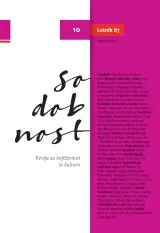Richard Rorty
(1931-2007) was a leading US postwar philosopher and pioneer of philosophical pragmatism. His publications include: Philopsophy and the mirror of nature (1979) and Contingency, irony, and solidarity (1989).
Articles
Béla Egyed has charged Richard Rorty of abdicating objectivity and critical rationality in his essay “Democracy and philosophy”. In a rejoinder written in March 2007, Rorty writes that being rational has nothing to do with the attempt to reduce moral disagreements to clashes between abstract principles.
“Jefferson and Kant would have been bewildered at the changes that have taken place in the Western democracies in the last two hundred years. For they did not think of equal treatment for blacks and whites, or of female suffrage, as deducible from the philosophical principles they enunciated. Their hypothetical astonishment illustrates the anti-foundationalist point that moral insight is not, like mathematics, a product of rational reflection. It is instead a matter of imagining a better future, and observing the results of attempts to bring that future into existence.” Richard Rorty, who died last month, outlines in the tenth anniversary edition of Kritika&Kontext the anti-foundationalist premise of his philosophy.
Without illusion, but with conviction
The pragmatism of Richard Rorty
“The goal of establishing a world federation, a ‘Parliament of Mankind’, seemed much more realistic fifty years ago than it does now. Then it was thought that the United Nations might evolve into something like a world government. Now nobody has this dream, even though the need for such a government has grown much more urgent”, says Richard Rorty in this 1999 interview.



